Renting an RV? These Are the Features You'll Want
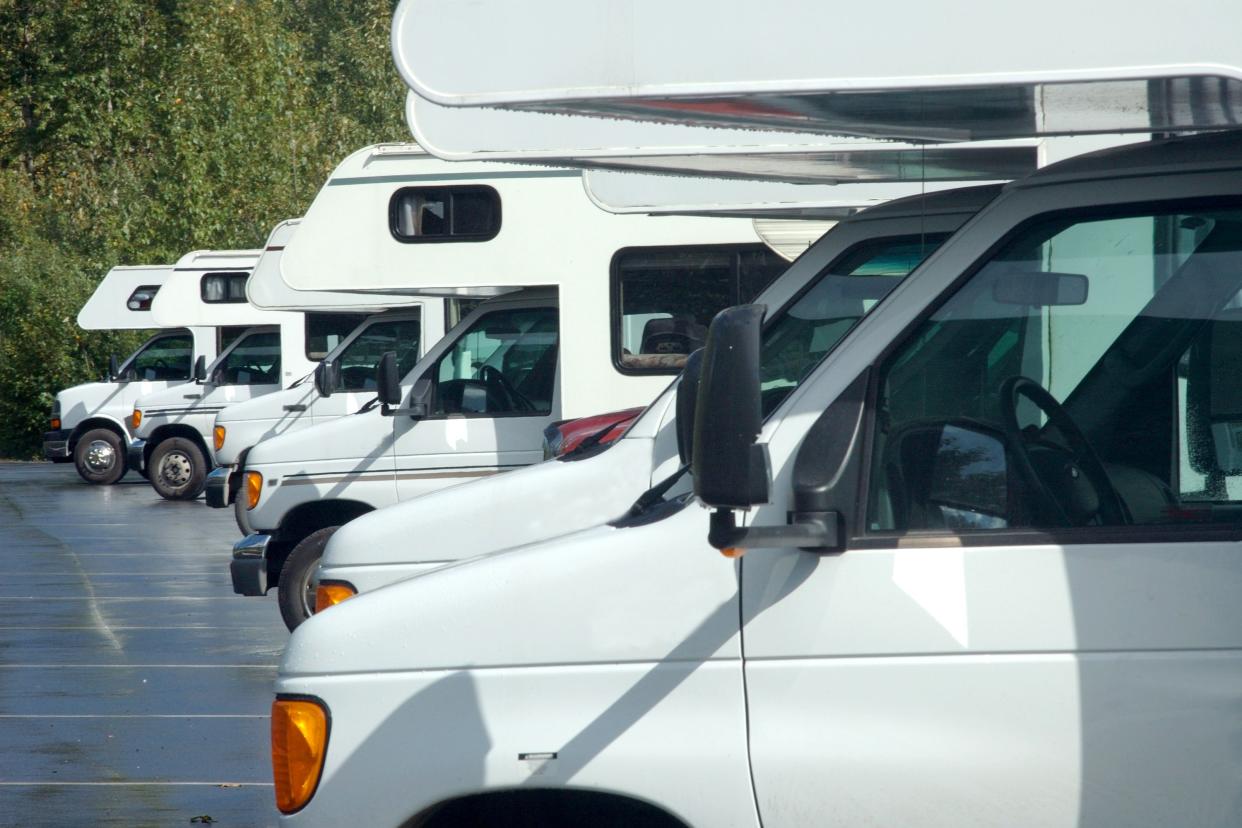
If you're planning to rent an RV to vacation this summer, you'll want to make sure you select the correct type of living space on wheels for your plans, as well as the best features to suit your needs. Maybe you're going big with a Class C or even Class A motorhome. Or perhaps you'll be towing a travel trailer or a fifth wheel, or need a specialty RV such as a fold-down or an expandable. No matter the case, the features you choose will go a long way in determining the experience you have. Here's some expert advice on the must-haves and extras you won't want to go without, the features you'd probably be better off avoiding, and a few tips for nailing the RV-renting process like a pro.
Related: 50 Budget-Friendly RV Campgrounds to Check Out This Summer
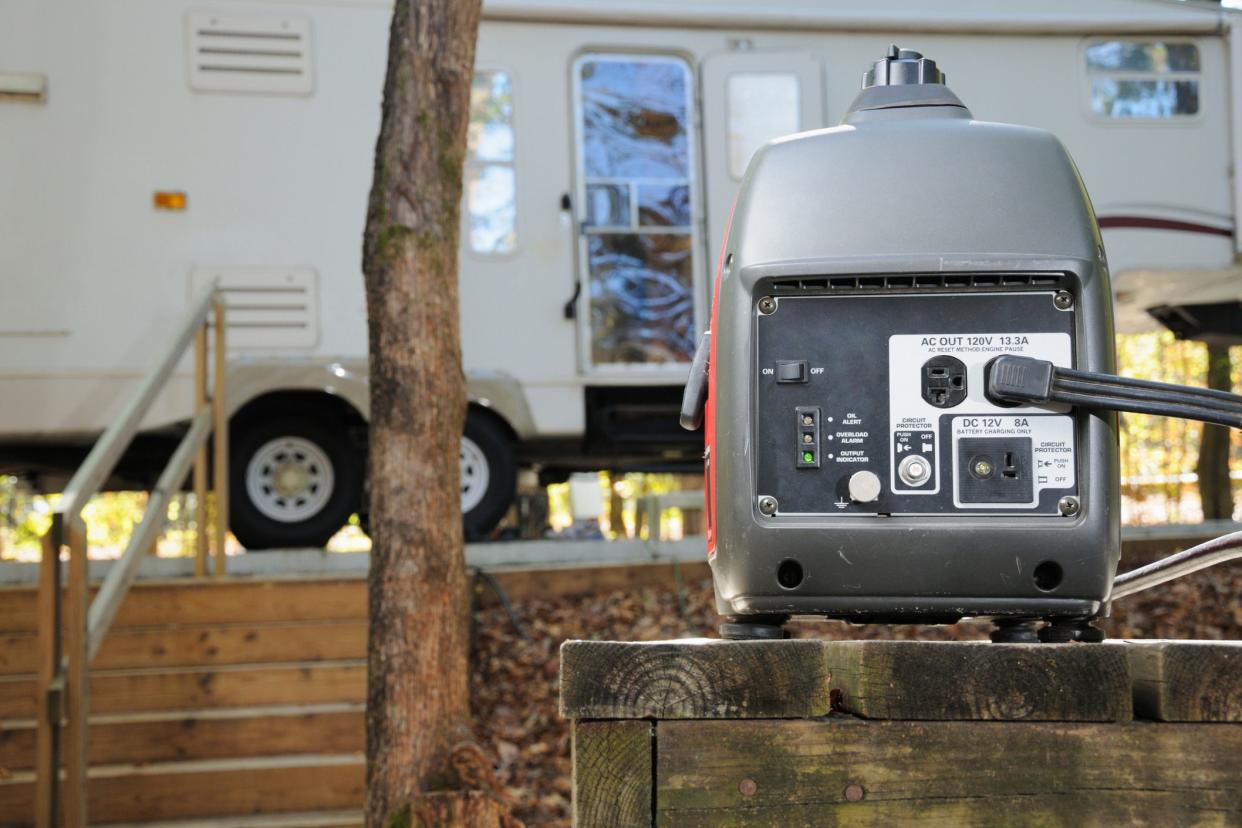
Kimberly DeCarrera is the writer behind RV Tailgate Life, a blog devoted to the RVing, travel, and sports tailgating communities. She's also the current owner of a Tiffin Class A gas motorhome that she bought new from the dealership, and the previous owner of a used Class A gas motorhome that she bought in a private sale. In her experience, the best features are the ones that support the exact type of RVing you expect to do. The first consideration is whether you're going to be boondocking or tailgating where you won't have access to electrical hookups. "If so, you'll need to make sure that the RV has a generator to keep the batteries charged and the air conditioning running," DeCarrera says.
Related: RV Accessories to Make Road Life More Luxurious
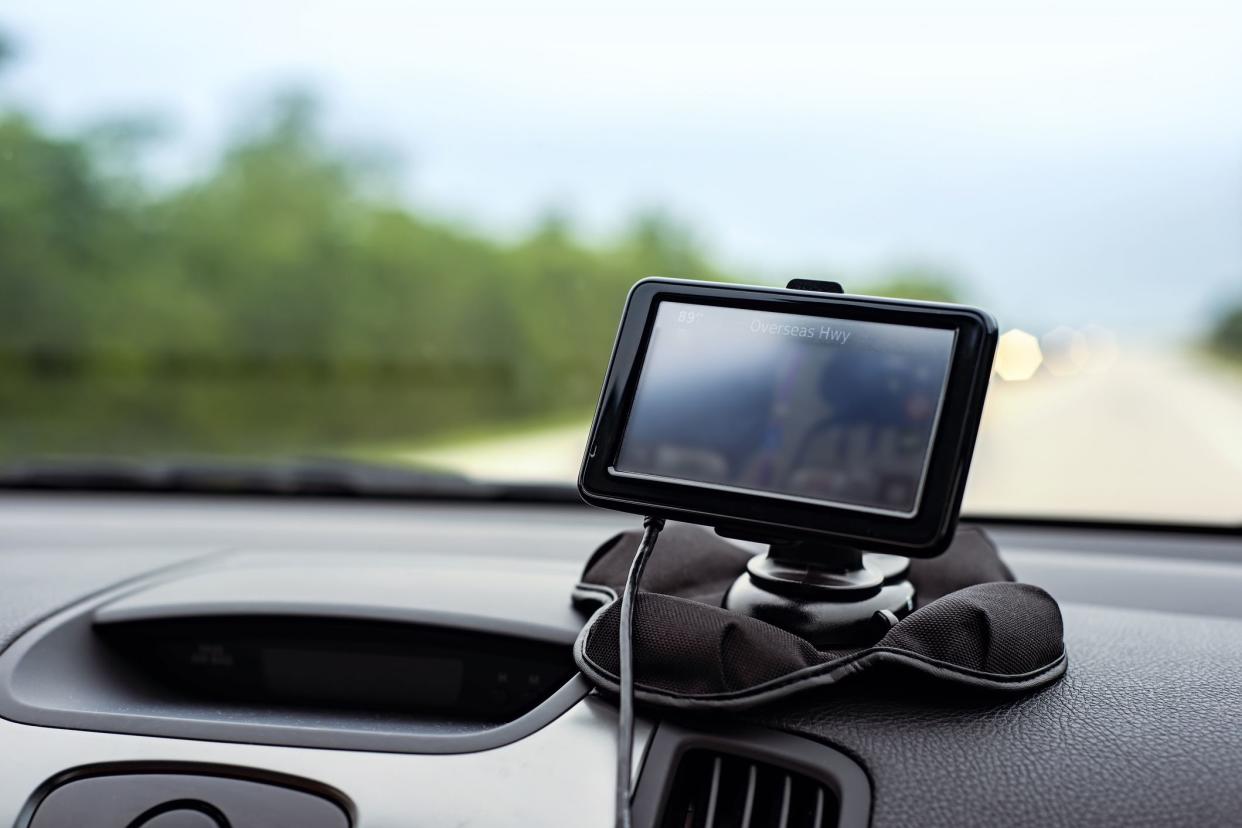
Standalone GPS systems might seem antiquated, but apps such as Google Maps are not always suitable for RVs, and not only because it's smart to have GPS that isn't shackled to a cell signal. "RVs are often longer, taller, wider, and heavier than cars and trucks," DeCarrera says. "This means that they cannot go just anywhere. Look into whether the RV comes with an RV-specific GPS unit. In all cases, make sure you know the dimensions of the RV so you don't get the air-conditioning unit scalped off the top of the RV. Yes, it happens. A lot.” Brooke and Buddy Baum, of TrailingAway.com, are full-time travelers who spent a full year exploring the U.S. and Canada in a 25-foot motorhome. They believe that specialized GPS is a downright must for safety. "If you'll be driving in areas you aren't familiar with," Brooke says, "an RV-specific navigation system will be worth the extra cost to make sure you don't go down any roads that your RV is too heavy for, or that have low bridges."
For more great RV articles, lifestyle stories, and money-saving tips,please sign up for Cheapism's free newsletters.
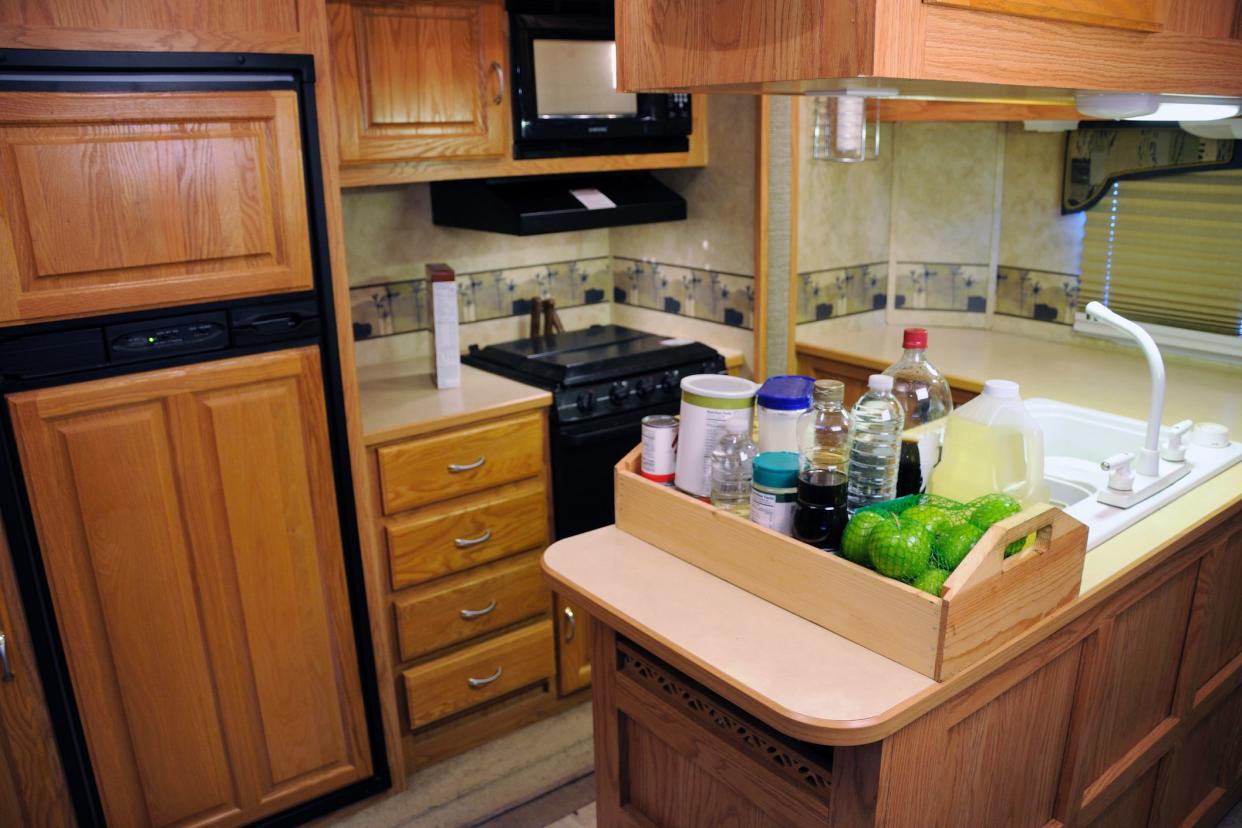
Kelly Beasley is the co-founder of RV education and product review site Camp Addict. In her experience, counter space is one of the most important amenities, but one that is often overlooked. "RVs are notorious for not having much at all," she says. "This makes cooking very difficult, especially if you are cooking for more than one. More counter space is always better, even in the bathroom."
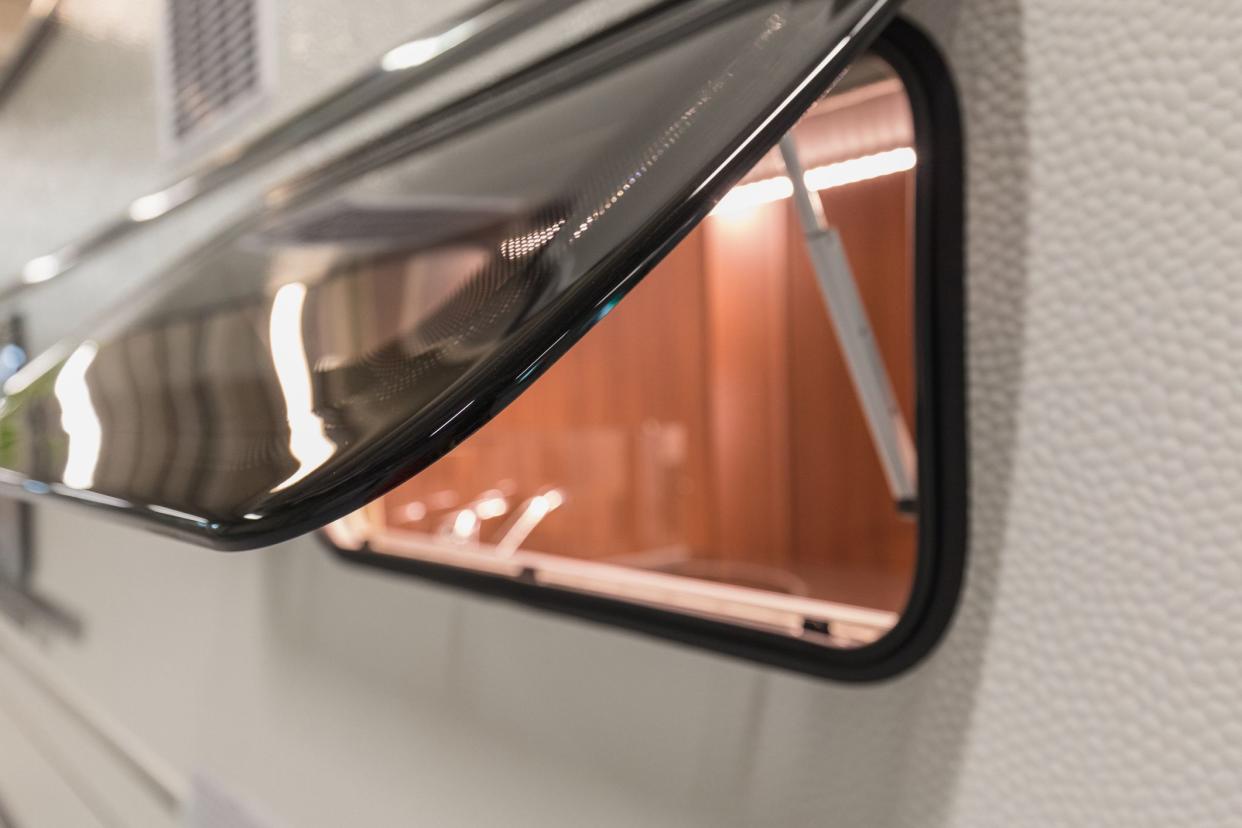
Some RVs have windows that don't open, and those that do often open little more than a crack. This should be a dealbreaker, especially in hot weather. "Get an RV with real windows that slide open, or at least open a decent amount," Beasley says. "These new styles of windows that only pop out a few inches don't allow for much air flow."
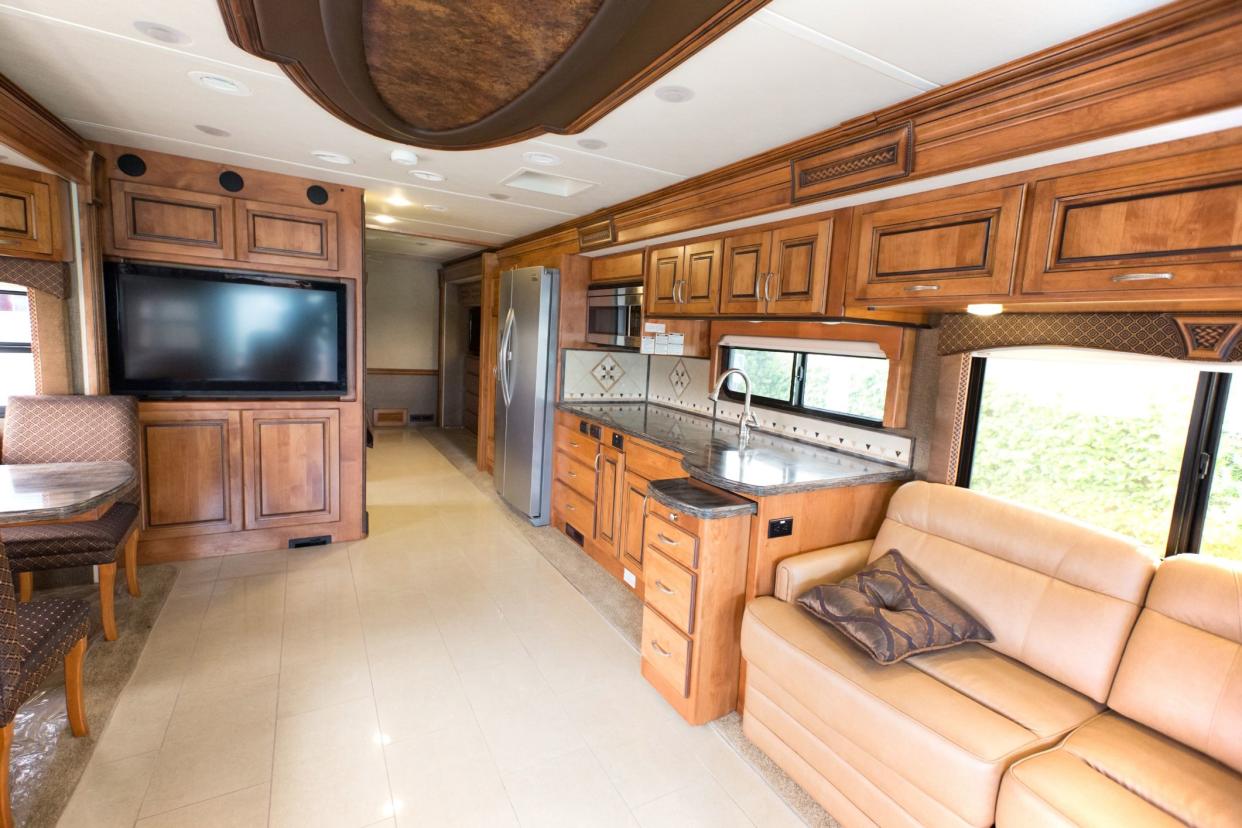
Your RV's floor plan will have a major impact on how you spend your time, so it's important to choose one that is what Beasley calls "socially friendly — if you have a family, or you plan to have friends over, there's nothing worse than a floor plan where nobody is facing one another," she stresses. "Don't rely on the booth area for hanging out. They are notoriously uncomfortable." She adds that floor plans designed to enhance social interaction are harder to find on trailers and smaller motorhomes. "If you want an RV large enough to have couches in there, get a layout where seating areas are positioned across from one another. Or you can get small beach-type chairs and put them across from the main seating area. Chances are you will hang out outside more often than not, but if you don't, or you catch a lot of rain, this becomes important for social comfort."

DeCarrera mentioned a generator as a must for boondocking and dry camping — both instances where water, sewer, and electric hookups are not part of the plan. Bob Hamilton, founder of RVDream, suggests upgrading from a gas generator to a system that's powered by the sun. "If you have it in the budget and it's available, solar panels are a nice splurge to have," Hamilton says. "Especially if you have an RV full of technology to charge up." Baum, however, doesn't think there's a reason to force yourself into a choice — solar-powered and traditional generators work well together. "If you plan to do dry camping, you'll want an RV that is capable of running off of solar power and has a generator as backup," she says.
Related: Best Portable Generators
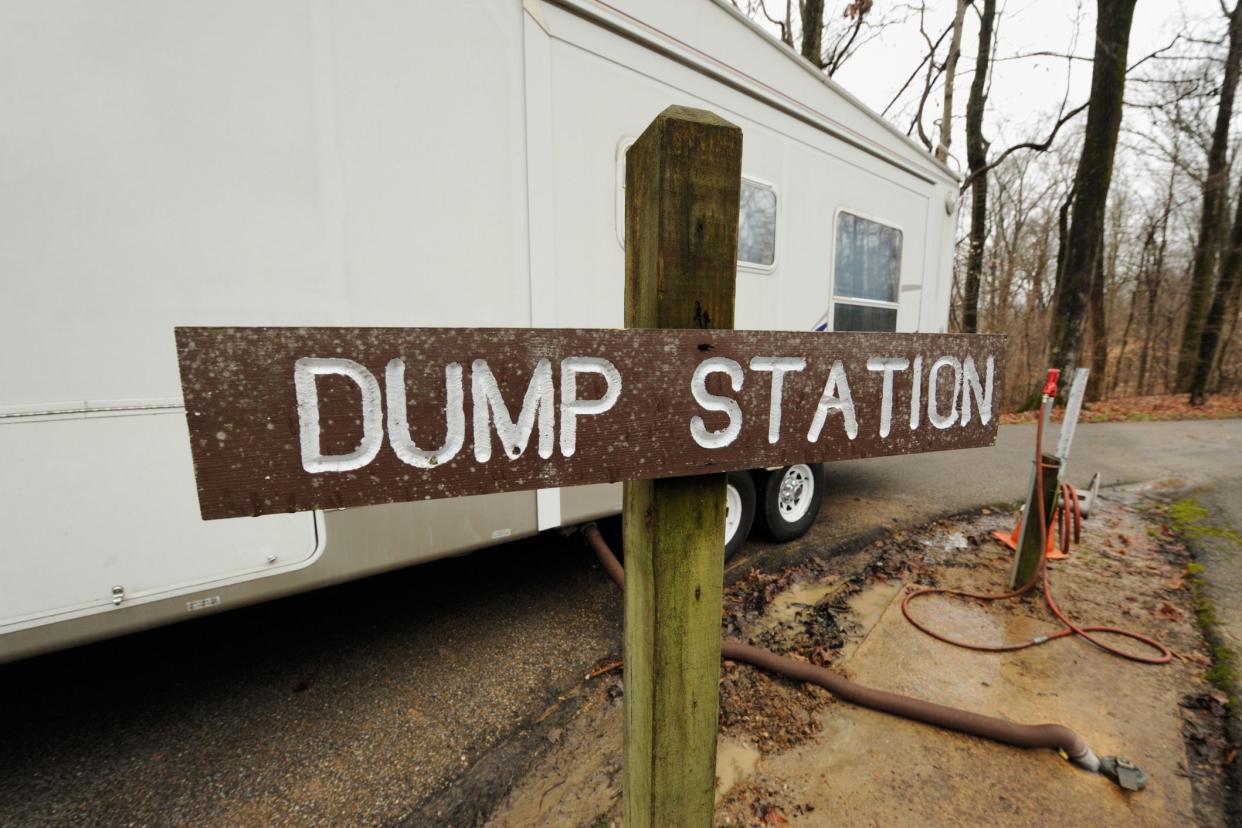
Always ask for extra-long or additional hoses for dump hookups — basically the RV version of a waste-management system — at camps. "The ones that they provide in rentals are notoriously short, and if you drive in and can't reach the hook-up, you will need to find a hose that works on the fly," Hamilton says. This also becomes a nuisance if you've already set up camp before you realize your hose can't reach its destination. "This can cause everything to be picked back up again while the RV is moved closer to where it needs to be," Hamilton says.
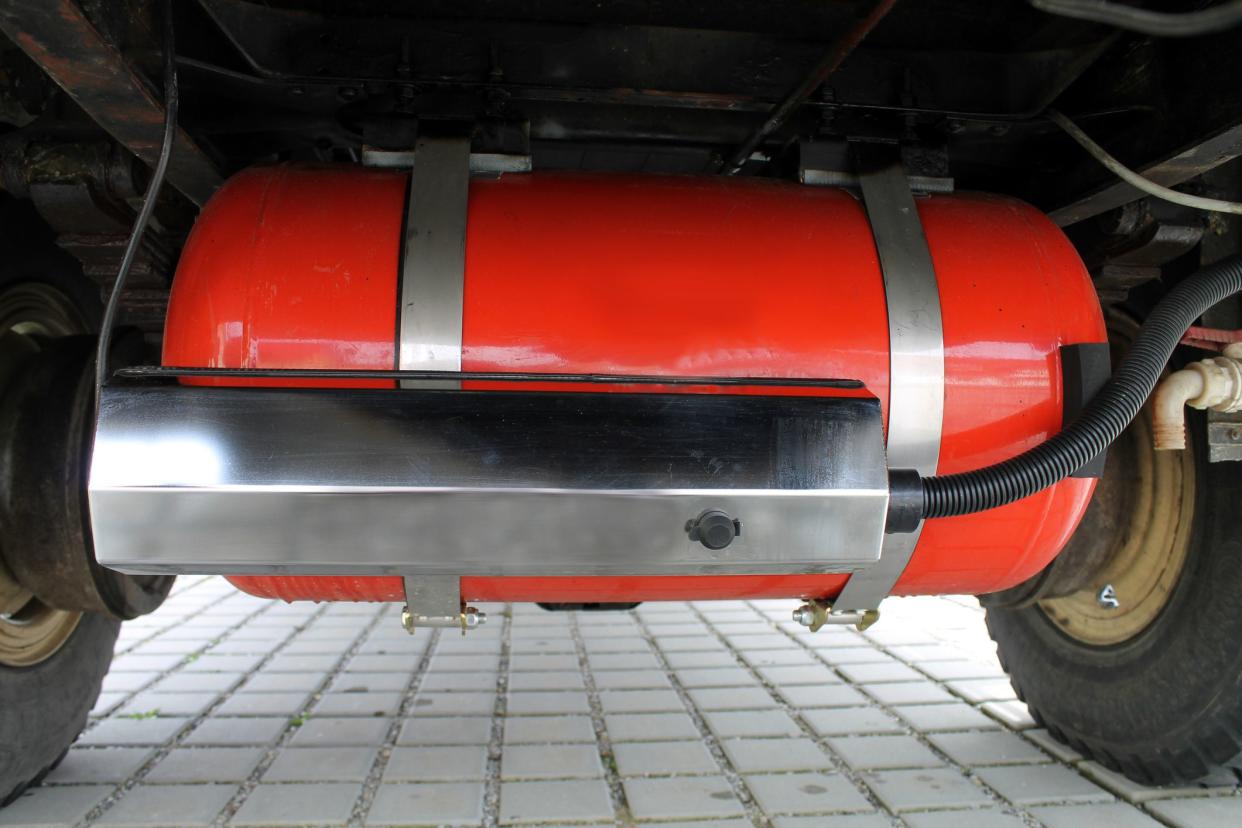
Before you sign on the dotted line, make sure to inquire about the RV's crucial foundational systems. Hamilton recommends you always ask "how full the propane is and how much fresh water is available." Also: When was the last time the vehicle was dumped, or cleaned out of bathroom waste materials? "They often aren't fresh," he notes.
Anyone who has ever overheated, blown a tire, ran out of gas, or broken down knows it's better to have roadside assistance coverage and not need it than to need it and not have it. The plan that covers you in a car likely won't apply to your RV excursion. "The standard AAA service is not going to cover an RV in most cases," DeCarrera says. "You'll want to ask whether roadside assistance is included with the rental." If the answer is no, you're not out of options: AAA's RV Plus and Premier plans offer roadside assistance for rentals, as does Good Sam's Platinum plan, Allstate Platinum Elite, and Better World Club.
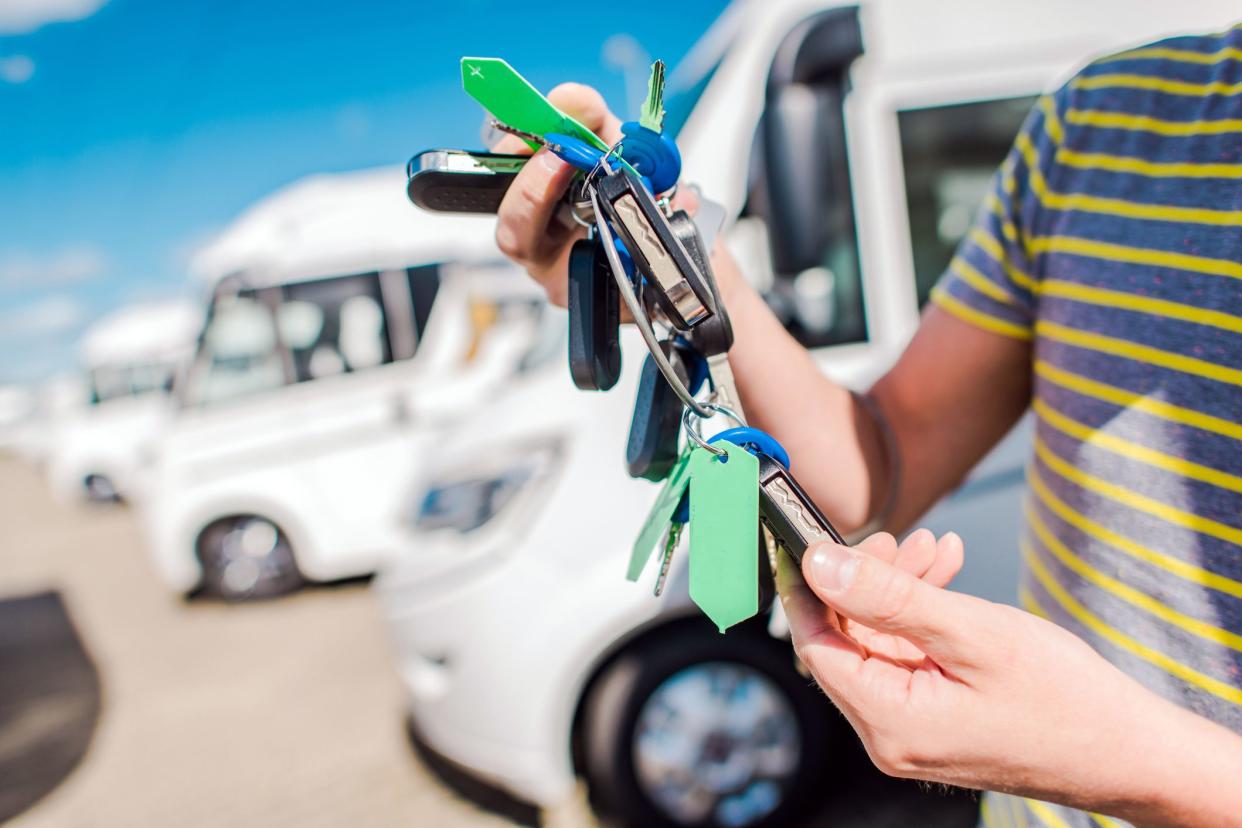
Many RV rental companies offer a service to deliver and pick up the RV from your exact camping location. "If you aren't comfortable driving or towing an RV, this is definitely a feature you'll want to look for," DeCarrera says. "The cost will be a lot cheaper than potential accidents, even if covered by insurance."

Many newer RVs have come with washers and dryers. Whether this is a practical upgrade or an unnecessary splurge depends, like so many other features, on what you plan to do on your journey. "If you are renting an RV for a weekend, don't worry about these," DeCarrera says. "If you are renting for a longer period of time, a washer and dryer may be more useful." There are plenty of alternatives.
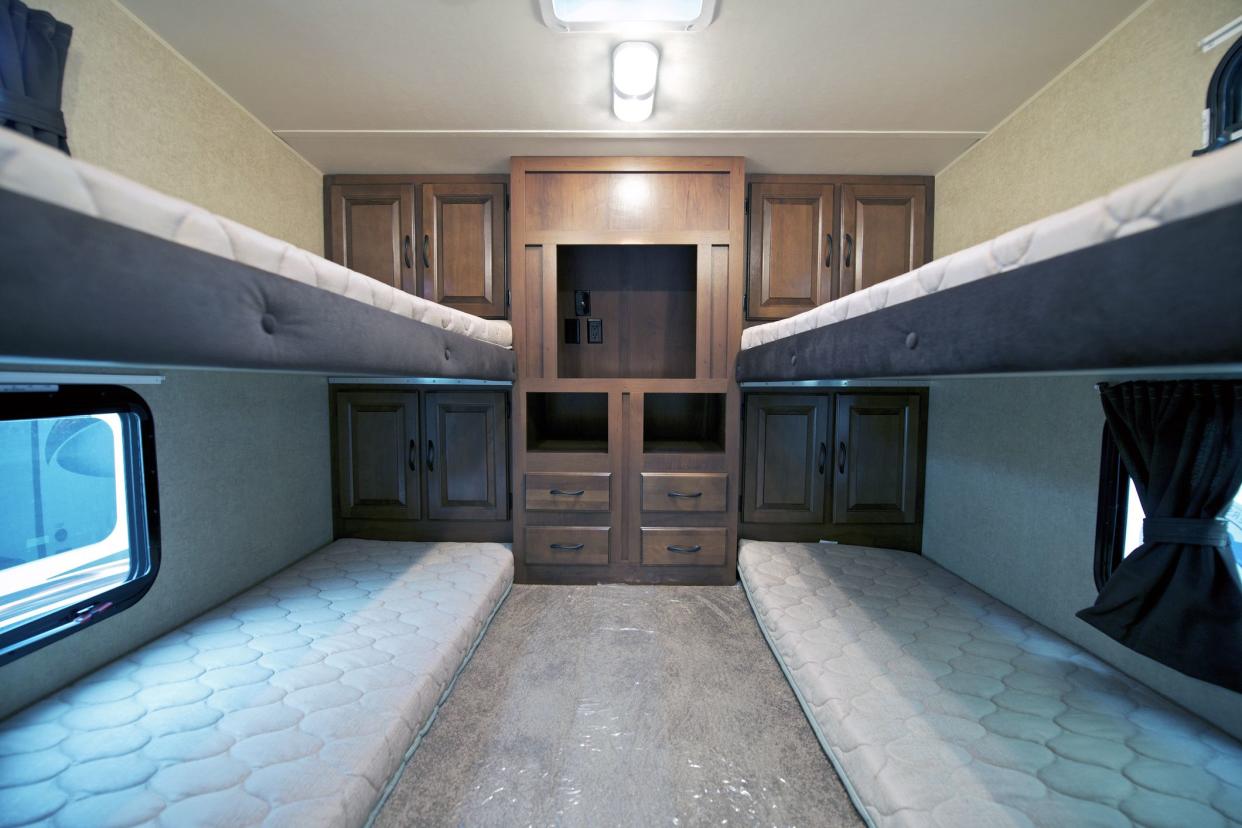
While most renters fixate on extras and add-ons, many often forget to take a close look at the most basic features, which are often the most important. "Test the mattress and the spare bed before you rent," Beasley says. "If you aren't sleeping well, you're not going to have a good trip. For that matter, make sure all the seating is also comfortable. Test all the appliances before you rent. This includes the furnace, the AC, stove, TVs, water pump, hot water heater, etc."
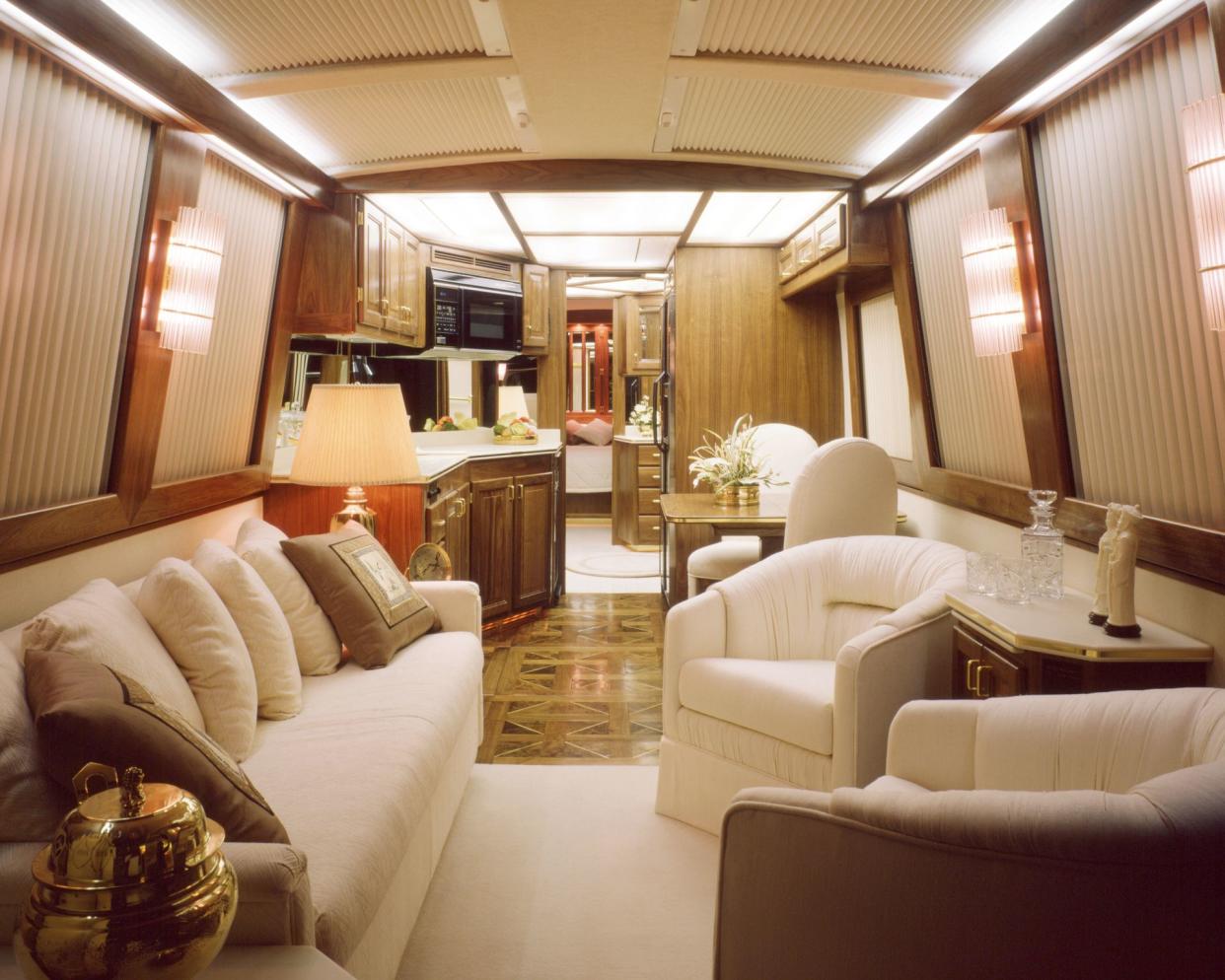
Bob Hamilton stresses that feature selection doesn't matter if the company you rent from doesn't offer RVs that have the best options. "Most RVs from the more traditional rental companies are very basic," he says. "To get the best amenities, I suggest going to a company that rents out RVs that are owned by individual people who want to monetize their RVs when they aren't using them. Benefits include better-taken care of RVs, more choices, and even more high-end RVs are going to be available. There is huge growth in this area across the country."
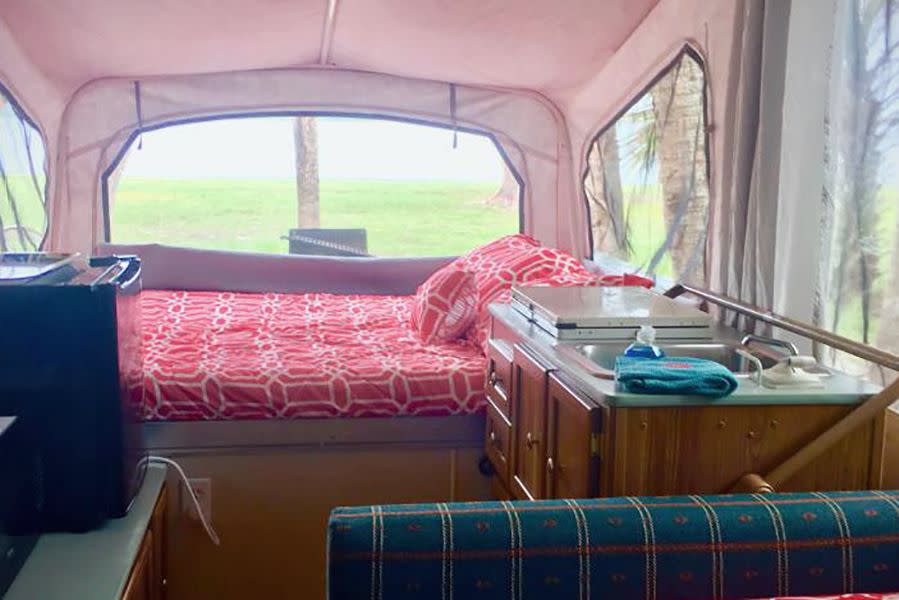
The Airbnb rental model has been adapted for the RV industry, and the business model gives you access to virtually any RV with any set of features — often for a steep discount. Consider renting direct from the owner through peer-to-peer networks designed specifically for RVs. The biggest and best-known of the bunch is RVshare, which spans the entire country with an inventory of more than 100,000 vehicles, from budget travel trailers to luxury motorhomes.
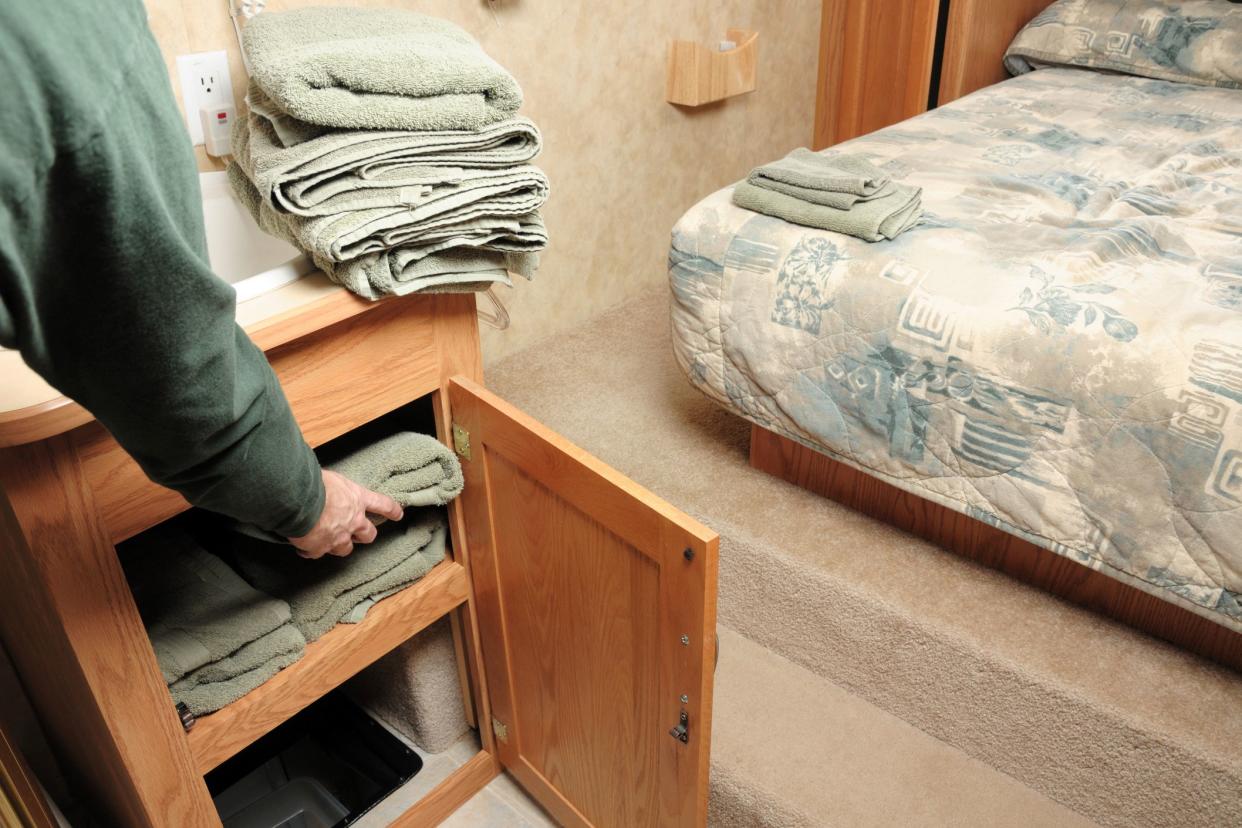
Rental companies make a handsome fee selling newbies convenience packages they could provide on their own for free, or close to it. Avoid these in almost all circumstances. "The biggest waste of money that we've seen for RVers is the optional kitchen, bedding, and towel packages," Hamilton says. "They are often not of great quality, and they overcharge for them. Instead, we recommend going to Walmart or even the Dollar Store and picking up necessities. When you are done, donate them at the local Goodwill or ask if any fellow RVers need them. You will save a ton of money and get things that are new and more to your liking, and most importantly, at a fraction of the cost."
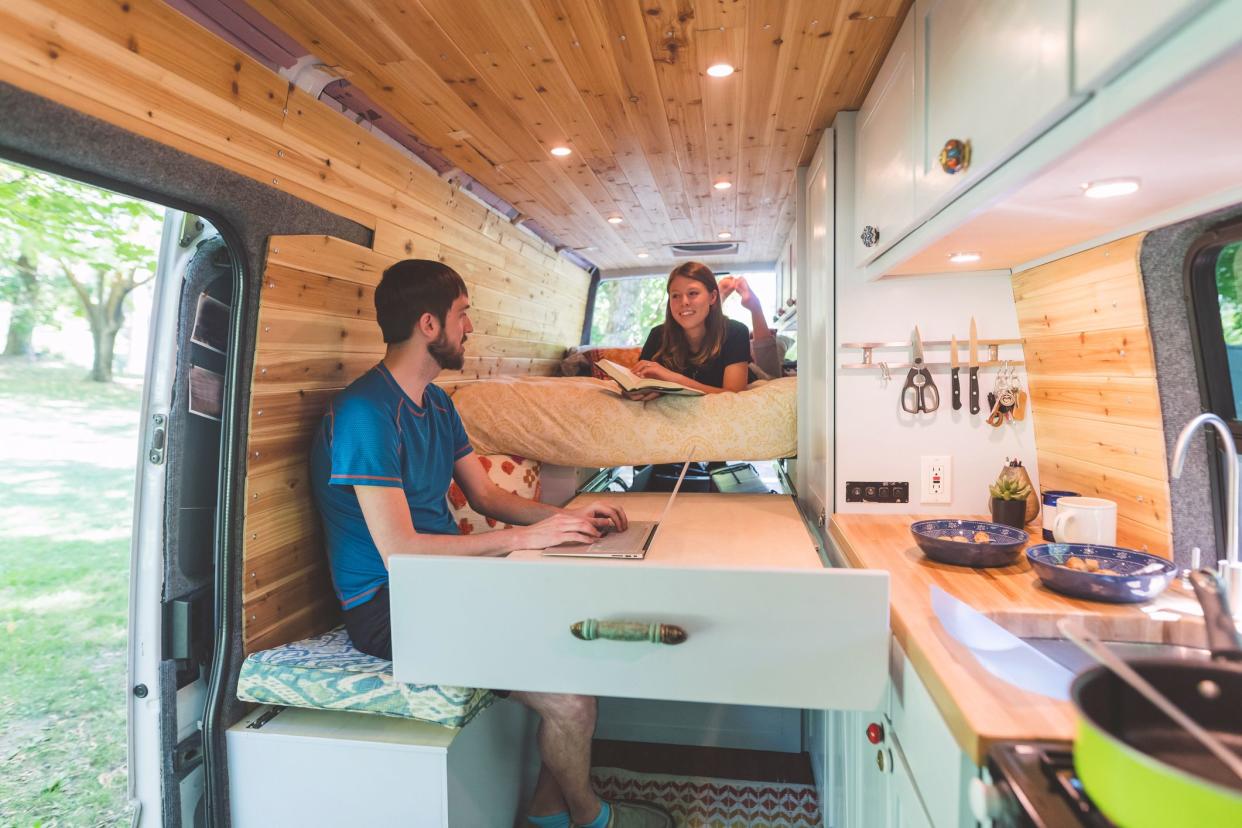
If you're renting an RV for the first time, it's natural to want to get the biggest you can afford. It's also usually the wrong move. "While the picture of large RVs may match what you've always envisioned, there are many drawbacks for first-time RVers, especially when you consider gas and navigating roads. We suggest getting the smallest RV that you can while still comfortably sleeping everyone traveling. Unless you are a family with 3-plus kids, suggest looking at around a 25-foot RV to start," Hamilton says.
A full-size RV might be more than you even need. Consider the alternatives. "Very popular now are the smaller van RVs," Hamilton says. "These cars get better gas mileage and are easy to drive. While they don't contain a bathroom or shower, they come with a kitchen in the back where you can do basic cooking on a propane stove. They usually have a popup bed so you can sleep a couple and one or two small children."
Related: Coolest Off-Road Camper Vans for Summer Adventures
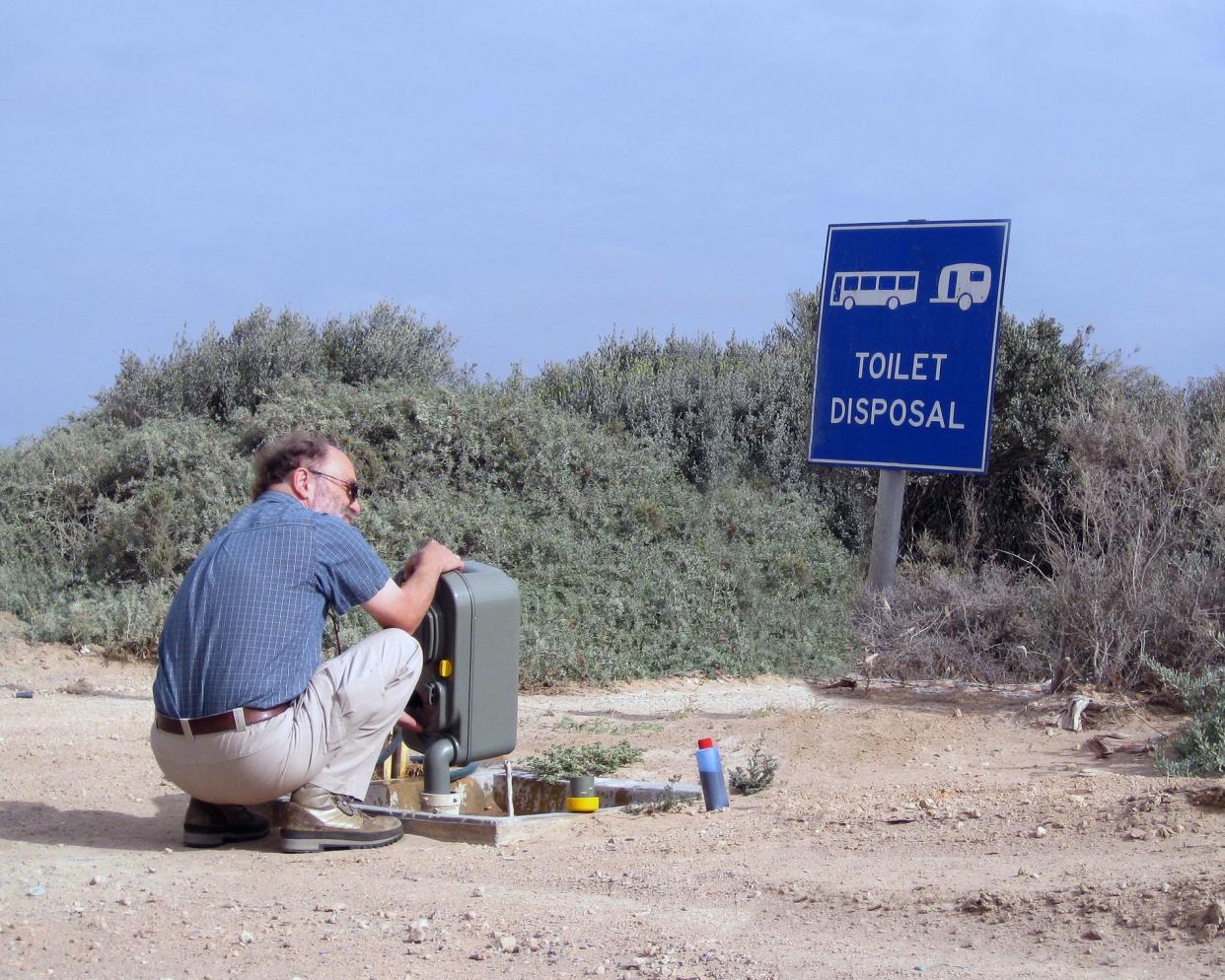
Most rentals charge so-called dump fees for disposing of accumulated waste when you return the vehicle. You can often dodge this fee by doing it yourself. "If you are staying at a campground, then you will likely have either sewer hookups or a dump station," DeCarrera says. "This means that you can dump your black and gray waste tanks before you return to the rental place and save the money for dump fees. Similarly, there are quite a few places where you can dump for free or low cost outside of campgrounds. It may be cheaper to pay that small dump fee than the rental company's dump fee."
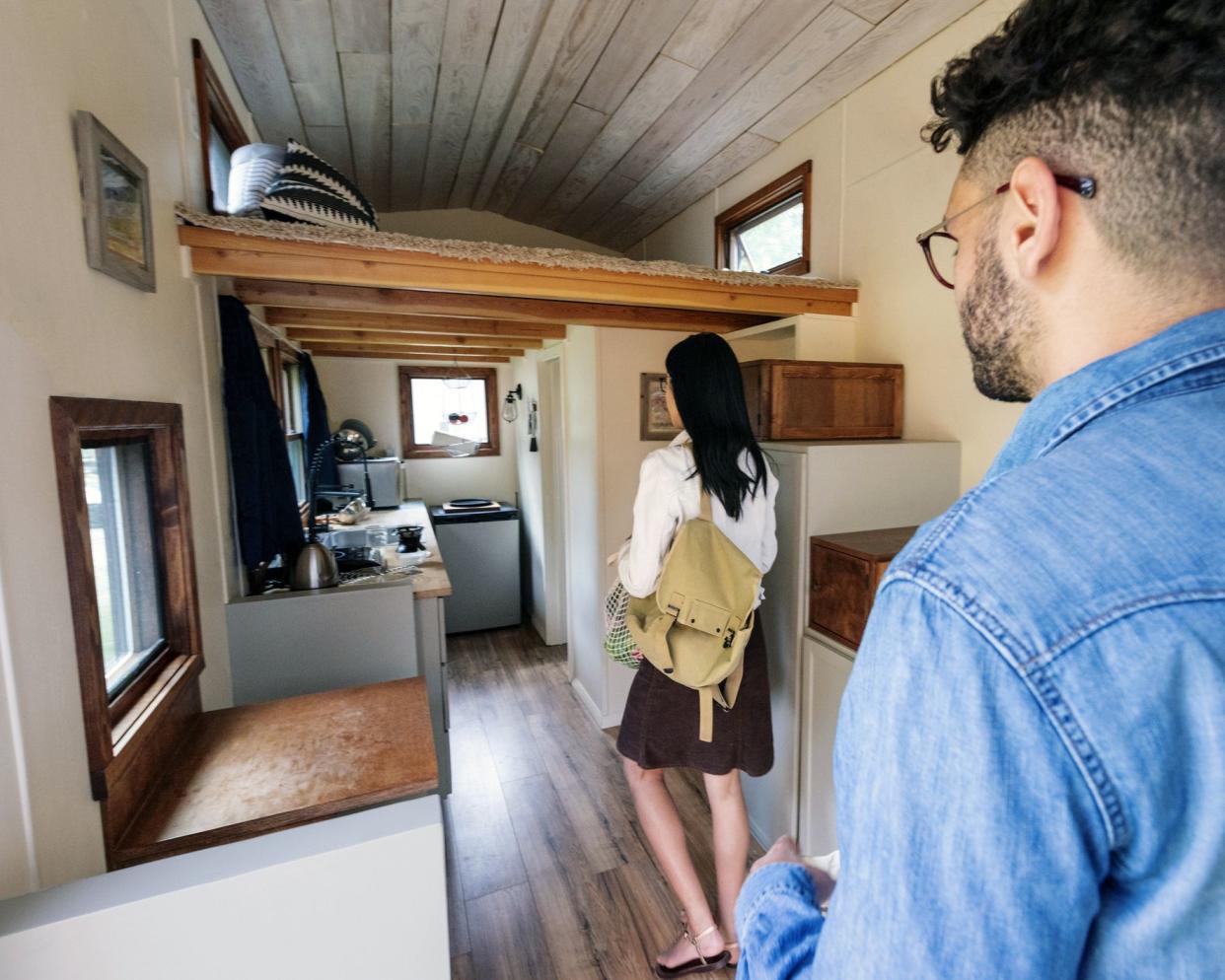
Most rentals include a walkthrough. They take place when you're most excited about the amazing RV that's about to be all yours for a while. Don't let your mind wander, as this is a critical time in the process. "The company will give you a super quick walkthrough," Hamilton says. "Don't rely on memory on how to do things — record it on your camera so you can refer back to it when you need it."
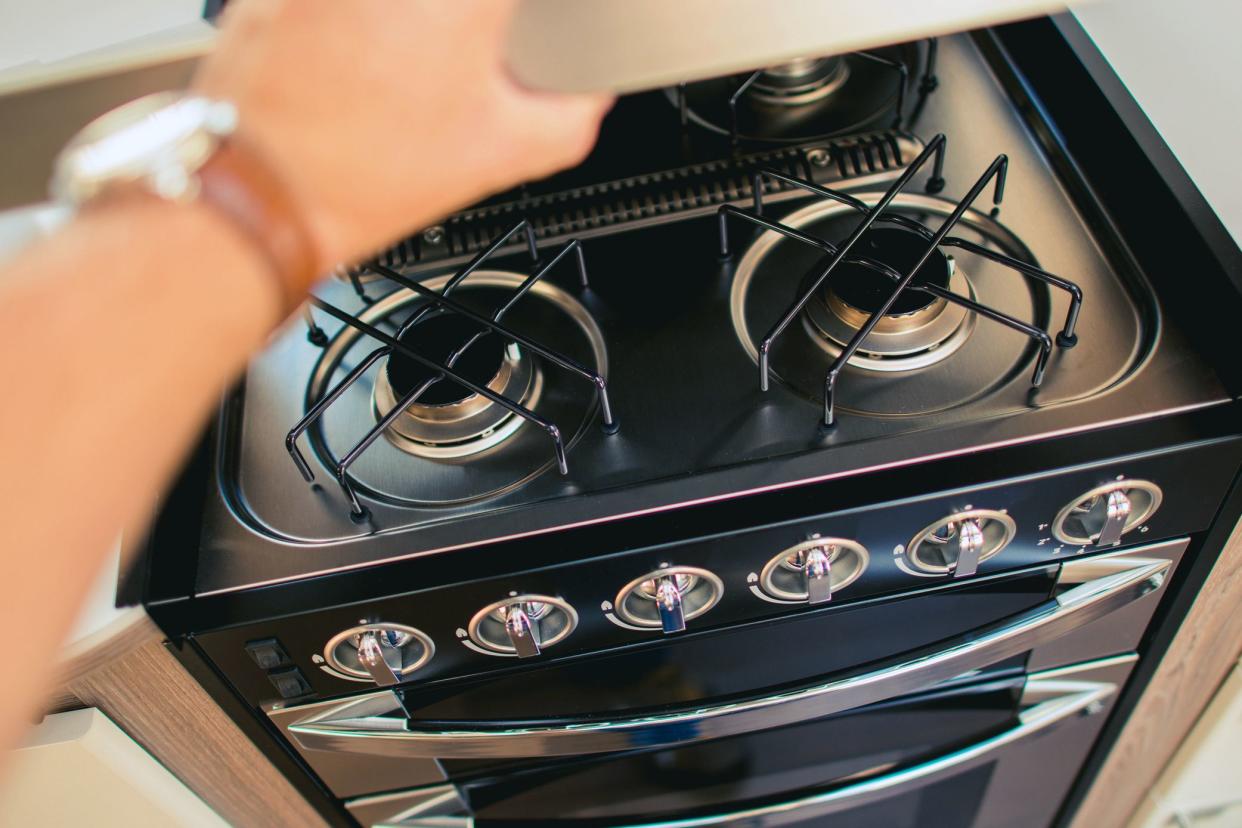
When you're perusing a rental, smell with your nose as much as you look with your eyes. What Hamilton calls the "sniff test" is critical to making sure you're not going to be taking a vacation with dangerous and a faulty RV. "Make sure you don't smell propane," he says. "If you do, that means that there is a leak somewhere and will cause trouble. Propane is important for everything from cooking to showering."
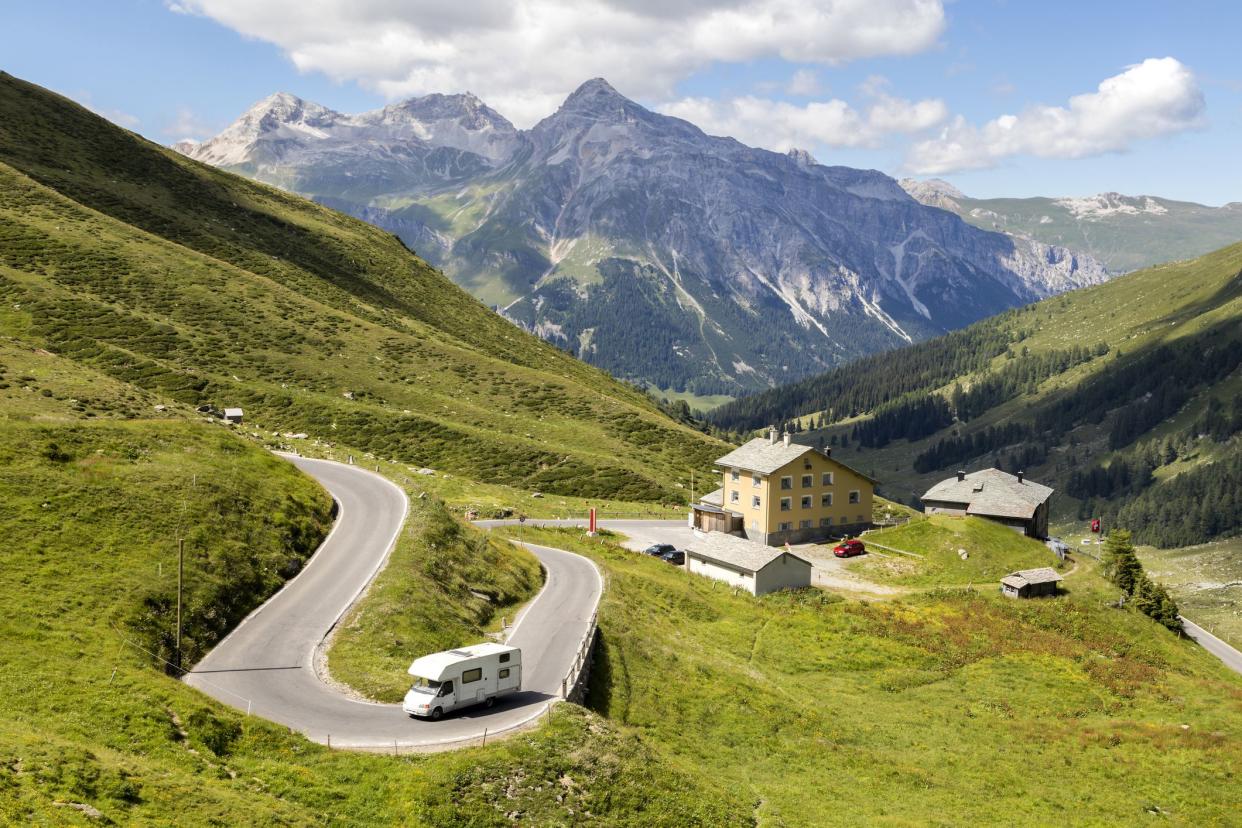
In the end, remember that the features you choose should be based on how you'll use the RV. According to Hamilton, you should consider the following: Where and when you'll be traveling, condition of the roads — weather-wise and physical — availability of bathrooms and showers where you'll be camping, plus the size of the spaces where you'll be parking. "These should all play into your decisions," he says. "If you are going somewhere mountainous, make sure you get a 4-wheel drive package and a heater. Somewhere hot, the A/C will be key for you. If there are bathrooms and a shower where you are staying, [having a bathroom inside your RV] may not be as important as it would be if you are boondocking."
